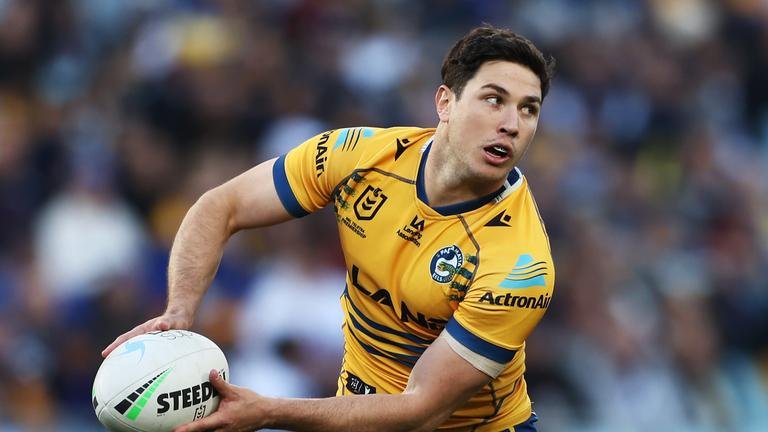
Mitchell Moses Resolves Death Threat Case, Donates $2 Million to Help the Two Teenagers Start New Lives
In a story that has stirred emotion, debate, and reflection across the rugby league community, Parramatta Eels captain Mitchell Moses has chosen mercy over anger, forgiveness over punishment, and opportunity over resentment. The two teenagers who were identified in connection with death threats made toward Moses and his family have now been released, following the star halfback’s personal decision to intervene and help their futures take a different direction.
The case first came to public attention when Moses, who had been preparing for a crucial game in 2022, was informed that members of his family had received disturbing and threatening messages. Law enforcement immediately launched an investigation, and the revelations that followed shocked both the club and the NRL community. Two teenage boys, aged just 15 and 16 at the time, were identified as responsible. The severity of the threats meant they were remanded and processed under youth law.
During the investigation, Moses played through fear and pressure, arriving at stadiums surrounded by security, entering through secret access points, and constantly being aware of the safety of his family. Supporters expressed anger, many calling for harsh punishment. Many believed the boys should face the full force of the justice system.
Yet Moses saw the situation differently.
Known for his leadership and emotional maturity off the field, the Eels captain told those close to him that he could not stop thinking about how young the boys were. He remembered being their age, living in Western Sydney, navigating influences, environments, and pressures.
According to sources close to Moses, he said:
“They’re kids. Yes, they made a terrible mistake. But if we destroy them now, what chance will they have to change?”
After more than two years of legal processing, evaluations, and rehabilitation programs, Moses stepped in once again – this time, to advocate for their release.
But he did not stop there.
Instead of leaving the boys to return to the same conditions that influenced their actions, Moses arranged a $2 million financial settlement directed toward helping the teenagers start legitimate small businesses, continue education programs, and receive mentorship. The money, according to club insiders, was divided into structured support funds rather than direct cash payments, ensuring transparency and proper development pathways.
This act has sparked enormous public debate.
Some fans and public commentators praised Moses as a rare example of compassion in modern professional sports. They called it leadership, maturity, and a demonstration of real community responsibility.
Others strongly criticized him. A number of voices argued that such kindness could send the wrong message, possibly encouraging future cases of harassment or intimidation by those hoping for financial support.
But Moses stood firm.
In a brief statement made after the release of the teenagers, Moses shared his perspective:
“This was never about rewarding what they did. What they did was wrong. It hurt me and my family deeply. But I believe in second chances. I believe in change. And I believe that young people need guidance, not walls put around them. I hope this becomes a story of turning a mistake into a future, not repeating it.”
Moses also took the opportunity to address young athletes, fans, and teenagers across Australia. He urged them to understand the real power of words, especially online. He emphasized how easy it is to act on emotion, frustration, or peer influence, without considering the consequences.
His message to the youth was clear:
“Your life is bigger than your worst decision. But you have to take responsibility. You have to choose who you want to become. Violence and threats aren’t strength. Strength is learning. Strength is changing. Strength is building something better.”
People close to the teenagers say they were overwhelmed by Moses’ decision. Reports suggest they apologized sincerely, accepted responsibility, and expressed shock that Moses would choose to help them instead of seeking their punishment. One of them is said to have broken down in tears upon hearing the news of financial assistance and mentorship opportunities.
The rugby league community is now paying close attention to what happens next. If the two teenagers are able to turn their lives around, learn skills, grow businesses, and contribute meaningfully to their community, Moses’ decision will be viewed as a powerful example of restorative justice in action.
However, commentators warn that the true test will be long-term consistency, discipline, and accountability.
For Moses, the ordeal has been emotional, personal, and transformative. Those who know him say he feels relief, not because the situation is over, but because he believes something positive may yet come out of something deeply frightening.
This case, with all its pain, fear, compassion, and controversy, has now become a conversation about what society expects from its young people, how we respond to harm, and how forgiveness can sometimes be a form of strength.
In choosing forgiveness, Moses may have changed more than the futures of two boys.
He may have changed the way a community thinks about growth, responsibility, and redemption.




